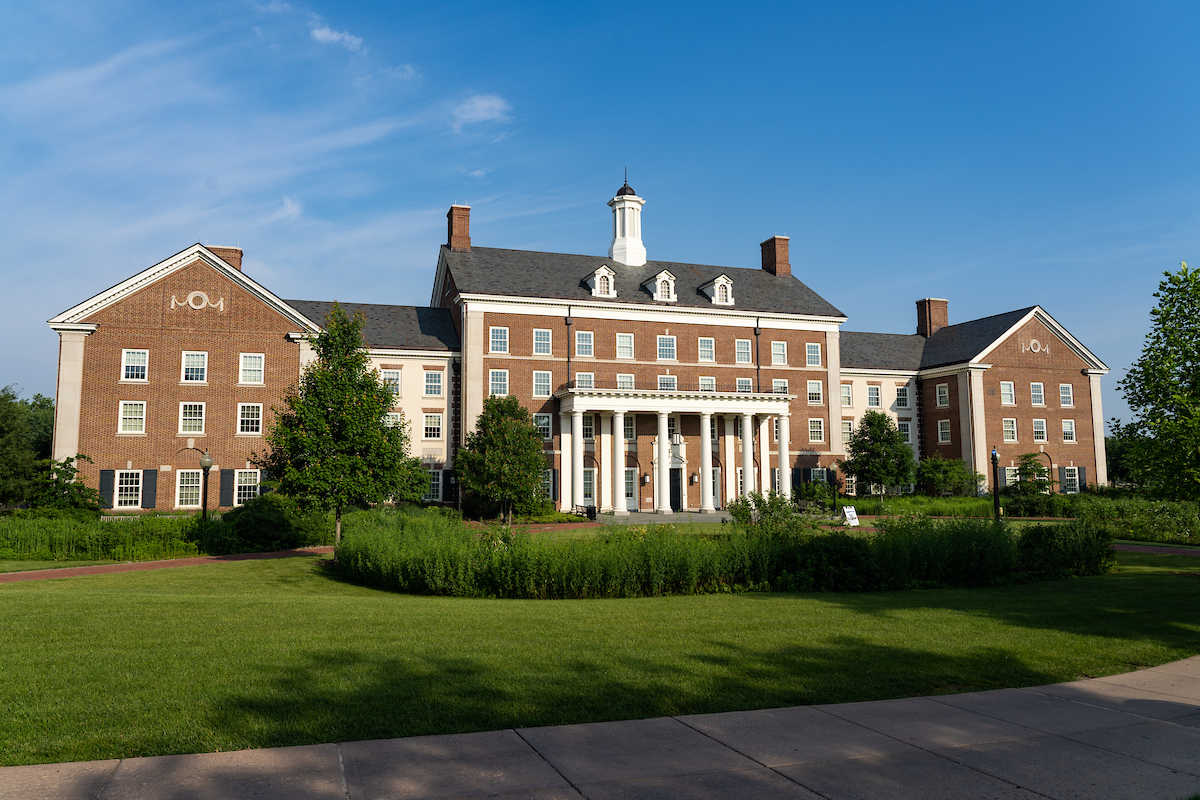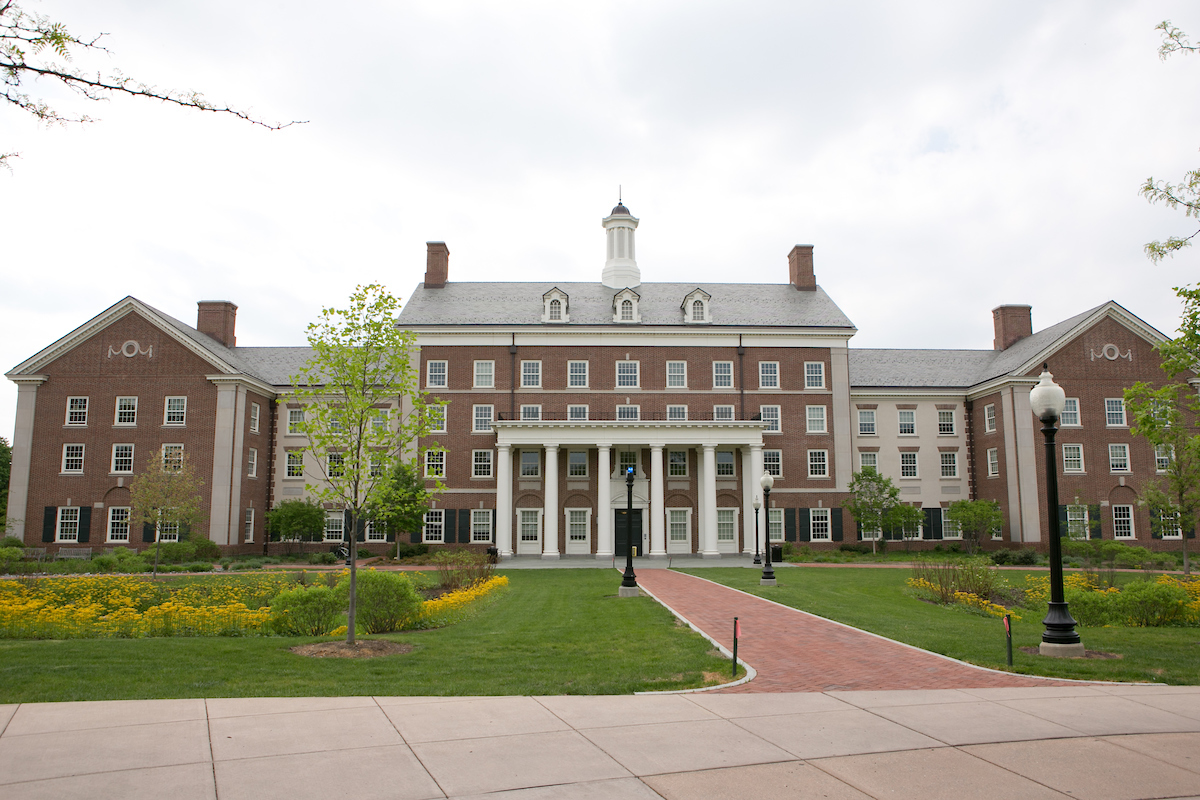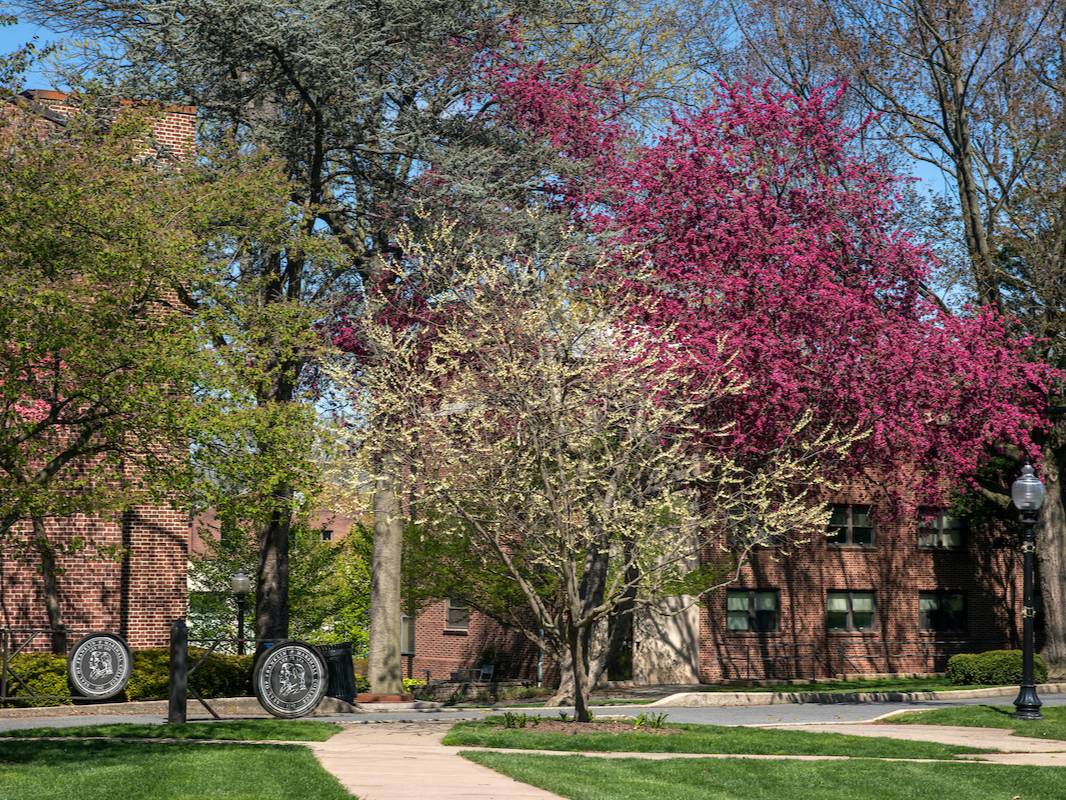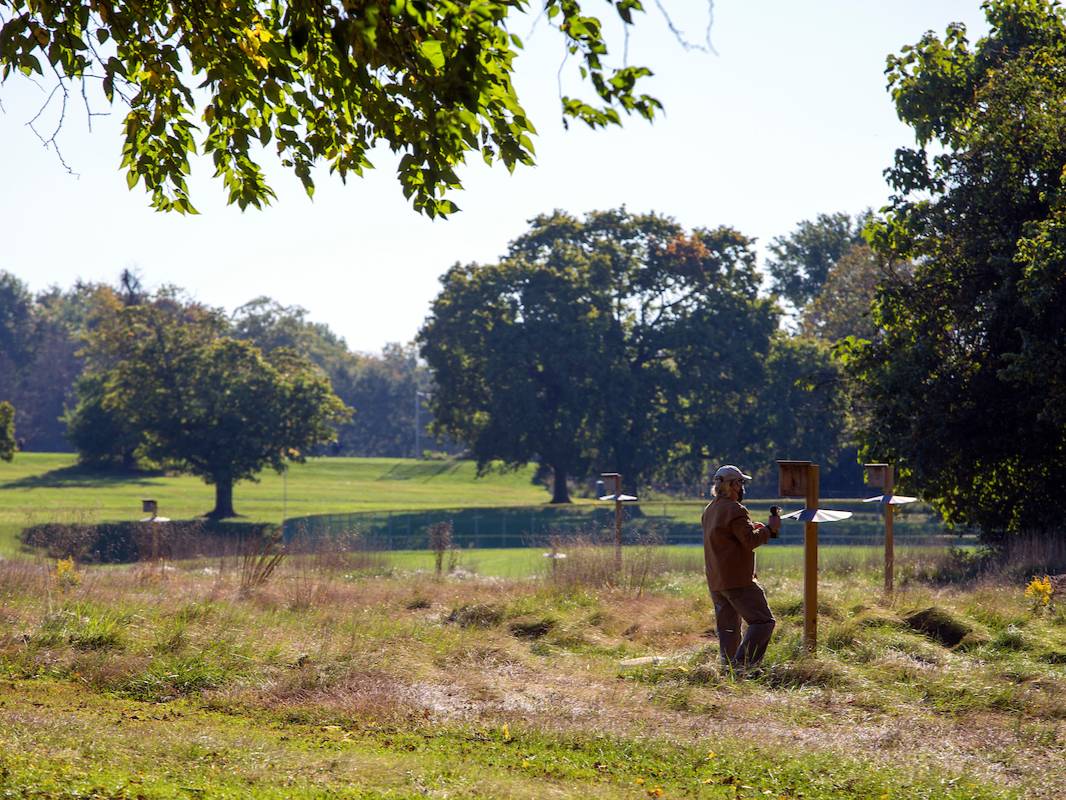Center for the Sustainable Environment
“Franklin & Marshall College will become a leader in sustainability by enriching the
environmental, economic and social well-being of our community.”
"We seek to minimize our use of natural resources, reduce our environmental impacts,
and educate ourselves and others about the roles and responsibilities of citizens
in a world of finite resources."
—Franklin & Marshall Sustainability Master Plan, adopted in 2012
Read more »
What is Sustainability?
Sustainability is a bit of a buzzword these days — and with good reason. The impact of human behavior on the environment is no longer contested, but a reality, and we see the results of climate change around us every day. We hope to be a part of creating a world where human beings, ecological communities, and economic systems can simultaneously function and thrive without damaging one another.
At F&M, we see sustainability as an integral part of how we teach, learn, work, and play. We are committed to continually finding new ways to push boundaries. The Center for the Sustainable Environment (CSE)'s location close to the heart of campus offers an ideal hub for students, faculty and staff to engage in activities relating to our three main objectives: education, action, and example.
Facilitating F&M’s dedication to excellence in undergraduate education, we work with
faculty and students across all disciplines to offer sustainably-based lectures, seminars,
research projects, outreach activities, and green living resources. Past programming
at the Center includes a food composting workshop, wild food tasting, an environmental
lecture featuring Jane Goodall, Green Cinema movie screenings, and sustainability
campus tours showcasing the physical sustainable features of campus, including solar
arrays, green roofs, and pollinator gardens, as well as the environmental studies
and environmental science majors, the environmental pre-orientation program, and student
environmental clubs. A sustainable idea doesn’t have to remain just that. Sustainable efforts originate
in all corners of campus, and we serve as a launchpad to bring these ideas to life.
By coordinating sustainable efforts College-wide, we enhance F&M’s reputation as a
leader in the community through the innovation, execution, and promotion of meaningful
environmental stewardship. Recent initiatives include DipsDonate, a move-out waste
reduction program that helps to divert hundreds of pounds of usable goods out of the
waste stream and the Environmental Pause, a program designed to promote mindfulness
and connection with the natural world. We lead by example. We strive to minimize our environmental impact. Our long term
goal is to create sustainable practices and methodologies that can serve as a working
model for other facilities on campus and across the broader Lancaster community. The
Center itself features many environmentally friendly and sustainable features: carpets
made from recycled plastic bottles and recycled car tires, reclaimed hardwood flooring,
recycled cork flooring, American Clay walls, dual-flush toilets, and Mythic paint
(non-toxic, zero-volatile organic compounds (VOC) paint).Education
Action
Example
Sustainability Initiatives
Sustainability has been blended into every inch of F&M’s campus. We continue to take steps to improve our sourcing of materials and building practices in order to make F&M a more sustainable campus.
The Center for the Sustainable Environment (CSE) has many environmentally friendly and sustainable features. Inside are carpets made
from recycled plastic bottles and recycled car tires, reclaimed hardwood flooring,
recycled cork flooring, American Clay walls, dual-flush toilets, and Mythic paint
(non-toxic, zero-volatile organic compounds (VOC) paint). The CSE — along with the
Bonchek, Brooks, and Weis College House Commons and Schnader Hall — also features
a green roof. Green roofs improve air quality and increase energy efficiency with
their thermal properties. The Sustainability House, a residential housing option, and the William M. Hackman
Physical Sciences Laboratories have active, energy producing solar panels. F&M is committed to meeting or exceeding LEED Silver building standards for all new
buildings and renovations on campus. LEED is the rating system used by the U.S. Green
Building Council to measure a building’s sustainability and resource-efficiency. We have several buildings on campus that satisfy LEED Silver equivalent guidelines: All spaces have high-efficiency sinks and toilets, furnishings made from recycled
fabrics, motion sensored lights, and perforated storm pipes. Three buildings on campus — Roschel College House, Shadek Stadium, and the Susan and
Benjamin Winter Visual Arts Center (WVAC) — earned LEED Silver certifications. F&M’s Roschel College House was the first LEED-certified building on campus. Designed
by Robert A. M. Stern Architects LLP and completed in April 2011, Roschel College
House incorporates numerous features to conserve energy and water and to reduce emissions
and waste. Roschel College House achieved an 18 percent reduction in energy cost savings
with its design. Inside are bamboo floors, an induction stove, motion-sensing lights,
and low-VOC paint and caulk. Along the perimeter are rain gardens that help reduce
stormwater on campus. The Shadek Stadium, home to F&M’s football and lacrosse teams, received the 2018 U.S.
Green Building Council (USGBC) Central Pennsylvania Award for Innovative Project New
Construction, and is LEED Silver-certified. Native and adaptive plants have been utilized
along with appropriate grass seed/sod and wildflower meadow mixes to eliminate the
need for irrigation around the stadium. The WVAC’s natural illumination and ventilation, along with active slab heating and
cooling, contribute to its LEED status. The WVAC was designed by architect Steven
Holl and earned The Architect’s Newspaper 2020 Best of Design Award in the institutional / higher education category. It also was a finalist for overall
Project of the Year. To help capture runoff from buildings and impervious areas, the College utilizes catchment
basins and rain gardens throughout campus. The rain gardens around Roschel College
House, in the Race Avenue parking lot, and at Shadek Stadium hold rainwater to be
slowly released into the groundwater table. The College is growing its collection of native plants on campus to help support native
pollinators. In addition to providing beautiful flowers, these plants help to supply
crucial nutrients to bees, butterflies, and other pollinators. With its rain gardens, gabions and porous asphalt, the Race Avenue parking lot is
the only parking area on campus that contains all rainwater on site, thereby eliminating
runoff into the Chesapeake Bay watershed. The Admission parking lot and the Weis College
House Pathway are also constructed with porous asphalt. Green roofs reduce energy required to cool and heat buildings, and retain water to
decrease runoff during rainstorms. F&M has just over 13,500 square feet of green roofs
across five buildings on campus. We employ integrated pest management throughout campus, a method that manages pests
and weeds without using pesticides. This approach monitors the trees and plants for
insects, diseases of foliage, and diseases of soil, ensuring the continued health
of the campus arboretum while protecting the environment. We’re committed to decreasing energy consumption and emissions while at the same time
pursuing alternative energy sources and making current systems more efficient. Goals
in the Sustainability Master Plan include reducing consumption of fossil fuels and
increasing use of energy-efficient and recycled equipment and materials. We work vigilantly to reduce electricity usage throughout campus. The College looks
at energy reduction from all angles to ensure as great of savings as possible. Some
the initiatives we have implemented to reduce the College’s electrical footprint include: LED lighting serves to reduce electrical usage while still providing high-quality
illumination both outdoors and in the classroom. The LED lighting projects installed
in 2013 and 2014 are expected to reduce F&M’s electricity usage by 2 million kilowatt
hours per year. F&M has two photovoltaic systems (systems that absorb the sun’s light and convert
solar energy into electricity) installed on campus, serving to promote the use of
renewable energy technologies on campus and in the greater Lancaster community. The
larger array (a 30.36 kW system) is installed on top of the William M. Hackman Physical
Sciences Laboratories. A smaller solar array (300 square feet) sits atop the roof
of F&M’s Sustainability House. Both systems help to generate electricity on site and
reduce the College’s carbon footprint. F&M has installed occupancy sensors throughout campus in an effort to reduce electricity
usage while spaces are not in use. As equipment ages and is cycled out of use, we are committed to replacing appliances
and other electronics with energy efficient units. We purchase Energy Star Appliances
whenever possible in a continued effort to reduce campus electricity usage. In 2009 and 2010, F&M replaced the boiler and chiller with higher efficiency units.
This helped to greatly reduce the amount of natural gas and electricity used on campus.
F&M has also been steadily replacing oil furnaces in builds not connected to the central
plant. The oil furnaces are removed and replaced with much more efficient natural
gas units that use fewer resources and have fewer emissions. In order to increase the sustainability of our campus, we adopted guidelines to promote
the conservation of energy. For interior spaces, the guidelines are: OCCUPIED SPACE Heating Season: 70 degrees Cooling Season: 75 degrees Heating Season: 62 degrees Cooling Season: 83 degrees Heating Season: +/- 2 degrees Cooling Season: +/- 2 degrees Over break periods, we further curtail heating and cooling in areas that are unoccupied.
This helps to reduce energy consumption while spaces are not in use. F&M’s food service provider, Sodexo, strives to incorporate local food whenever possible.
The majority of their produce is sourced and purchased locally and they take pride
in partnering with local businesses such as Hershey’s Chocolate in Hershey, Pa., Sweet
Street Desserts in Reading, Pa., and Harrisburg Dairies in Harrisburg. Organic and
Kosher meats and dairy products are available to students on a regular basis as well
as Fair Trade and sustainably sourced coffee. In addition to the continued drive towards sustainable food, Sodexo works to make
other aspects of the dining experience more sustainable as well. More than 1,400 universities across the U.S. are surveyed for Peta’s Vegan Report
Card. Seventy percent of them now offer at least one vegan option on their dining
hall menu. Franklin & Marshall’s dining services received a B grading in 2017, but
currently holds an A+ Rating. We work with various local businesses in many capacities. This includes special events
and regular offerings. Some vendors we work with include Square One Coffee Roasters.
They provide all the beans for the Diplomatic Cafe. We provide leftover food to Blessings of Hope on a regular basis during the school
year. We also run various food drives throughout the year for the Food Pantry here
on campus. An important step to sustainability is changing the way that we travel from place
to place, whether it be to Central Market in downtown Lancaster or getting home during
the breaks. While Lancaster is a walkable city with many restaurants and shops located less than
a mile from campus, we also offer alternatives that can help limit the amount of harmful
gas emissions. We’re proud to have earned the distinction of Bike Friendly University: Silver, through
the League of American Bicyclists. Joining the ranks of nine other PA colleges and
universities, F&M continues to strive for excellence in bike safety and accessibility
to help promote bike usage on campus and in our community. Our bike loan program offers
100 cruiser bikes, plus helmets and locks, for students to borrow — free of charge.
Students are also more than welcome to bring their own bikes to campus. F&M installed Electric Vehicle (EV) Charging Stations in the College Square, Winter
Visual Arts Center (WVAC), and Williamson parking lots. The stations are rated at
a level two setting, meaning that they charge at a faster rate than residential chargers.
The stations are open for us to the F&M and greater Lancaster community, free of charge. We offer free on-campus shuttle services to both libraries, several of the residence
halls, and various off-campus housing locations. Our shuttles also provide a link
to Lancaster, offering free transportation to nearby grocery stores and pharmacies,
as well as downtown Lancaster, Target, Walmart, and the mall. We also offer transportation
to Baltimore-Washington International Airport and Philadelphia International Airport
at the end of each semester for a fee. Local buses of the Red Rose Transit Authority also serve the F&M campus, and OurBus runs buses from Lancaster to New York City on Fridays, Saturdays, and Sundays. We are always on the lookout to reduce the amount of trash produced on campus. We
implemented several initiatives in order to maximize waste-saving efforts, including: Trash generated on campus is collected by members of F&M’s Facilities and Operations
using the College’s trash truck. The refuse is then taken to the Lancaster County
Solid Waste Management Authority (LCSWMA) Transfer Station, less than one mile from
campus. The majority of the refuse brought to that facility is transported to the
Lancaster Waste-to-Energy Facility in the south of Lancaster County, where the refuse
is incinerated to generate electricity. In an effort to reduce the amount of trash that is produced, F&M began single stream
recycling in 2013. With this change, we converted all existing bins on campus, added
additional collection locations, and designed new signage to create a uniform seamless
system. F&M Compost Co-Op Diverts Costs and CO2 in Lancaster A Franklin & Marshall College compost initiative has evolved into a co-op saving the
City of Lancaster $5,215 per year — all while diverting 16,638 pounds of food waste
from the solid-waste stream each month. The Lancaster Composting Co-Ops (LCC) are a volunteer-led, community initiative enabling Lancaster residents to reduce household
food waste by creating high-quality compost. Associate Professor of Environmental
Studies Eve Bratman piloted the program. "F&M students have been involved since the outset in helping to inspire and push along
the work," she said. We seek to be a responsible steward of its water resources by focusing on efficiency,
cultivating a climate-adapted landscape, minimizing potable water irrigation and effectively
managing waste water. The College has installed aerators in sinks and showers as well as low flow toilets
throughout campus. This helps to reduce the amount of water used by the College on
a daily basis. The College employs rain gardens, catch basins, green roofs and pervious paving to
help reduce stormwater on campus and mitigate its impacts on the nearby Chesapeake
Bay watershed.
Campus Buildings
The Center for the Sustainable Environment (CSE)
Solar Panels
Leadership in Energy and Environmental Design (LEED)
Roschel College House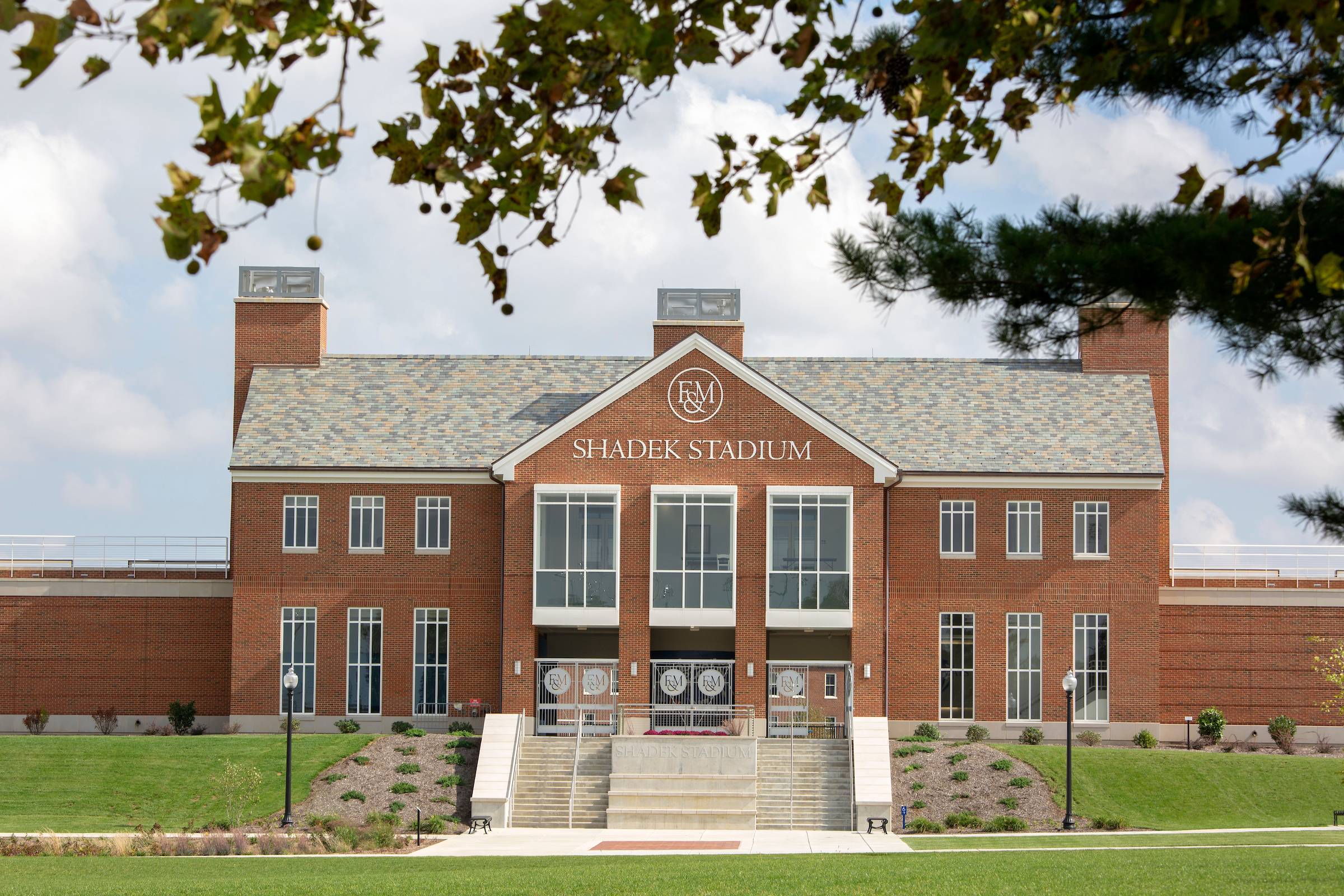
Shadek Stadium
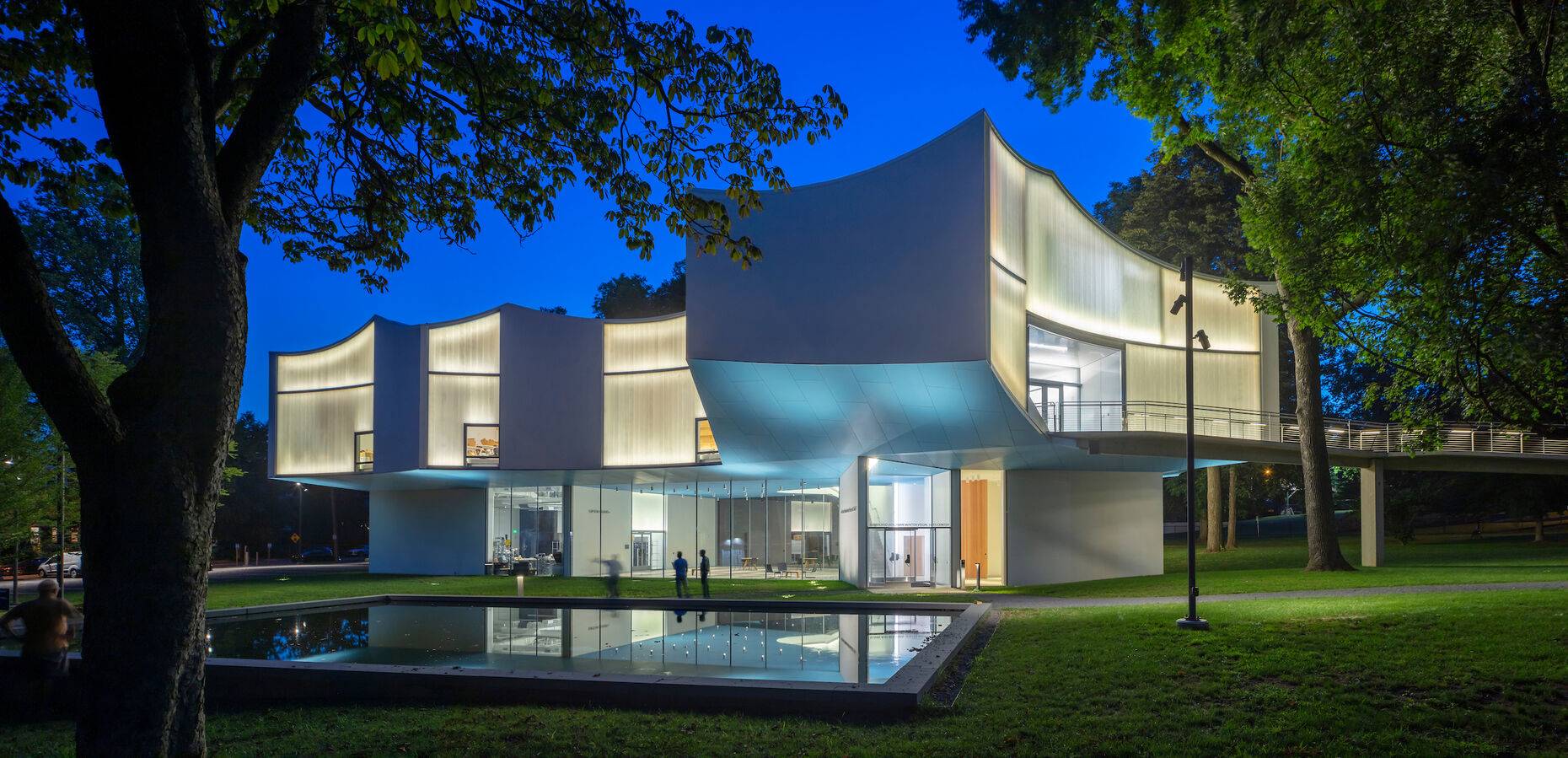
The Susan and Benjamin Winter Visual Arts Center (WVAC)
Campus Landscape
Rain Gardens
Native Pollinators
Porous Paving Around Campus
Green Roofs on Campus
Integrated Pest Management
Energy
Electricity
LED Lighting
Solar Panels on Campus
Occupancy Sensors
Energy Star Equipment
Heating and Cooling
Temperature
UNOCCUPIED SPACE
MARGIN
Food
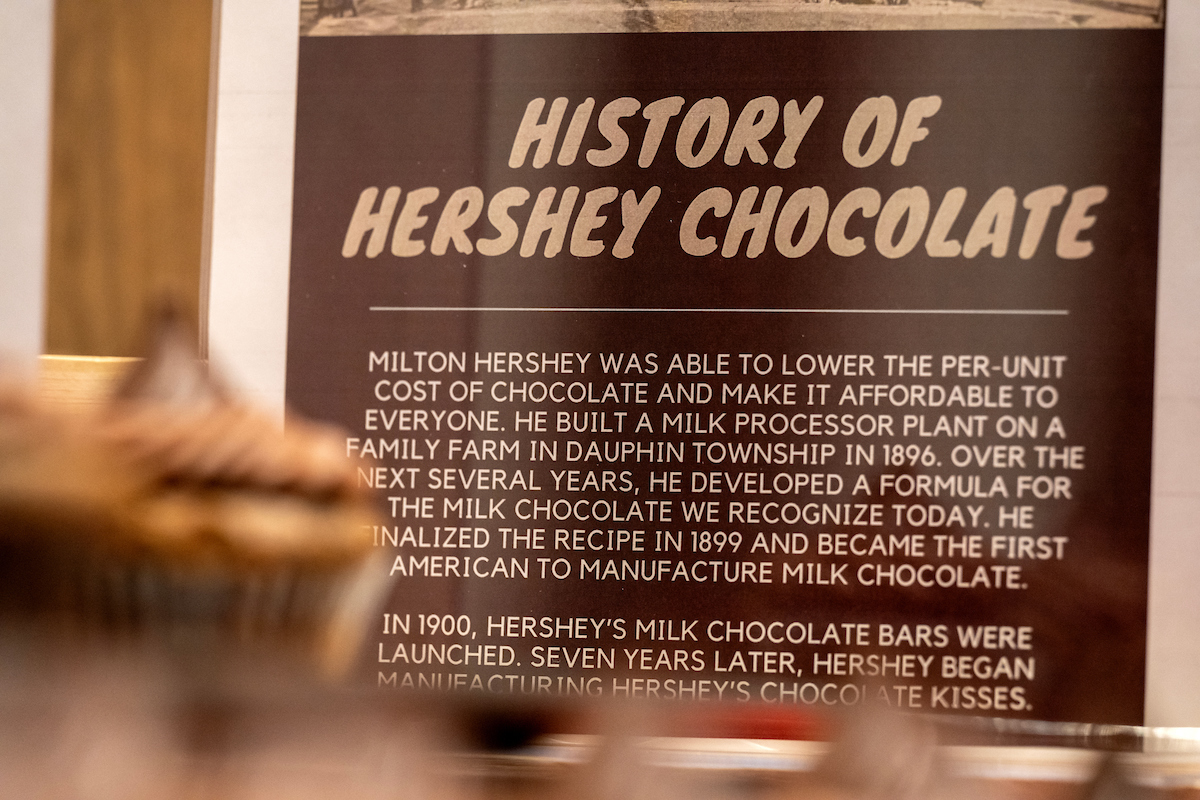
Local Food in Campus Dining
Sustainable Products
Vegan Report Card
Local Businesses
Food Bank
Transportation
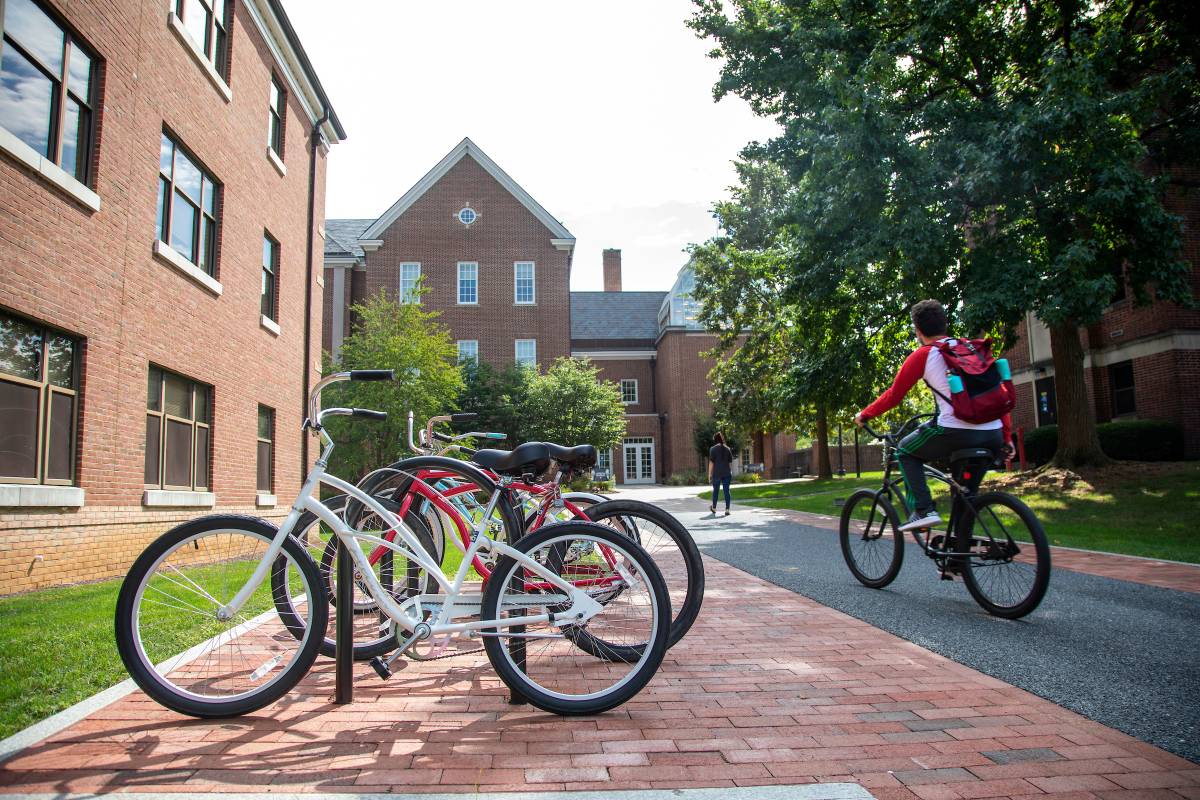
A Bicycle Friendly Campus
Learn more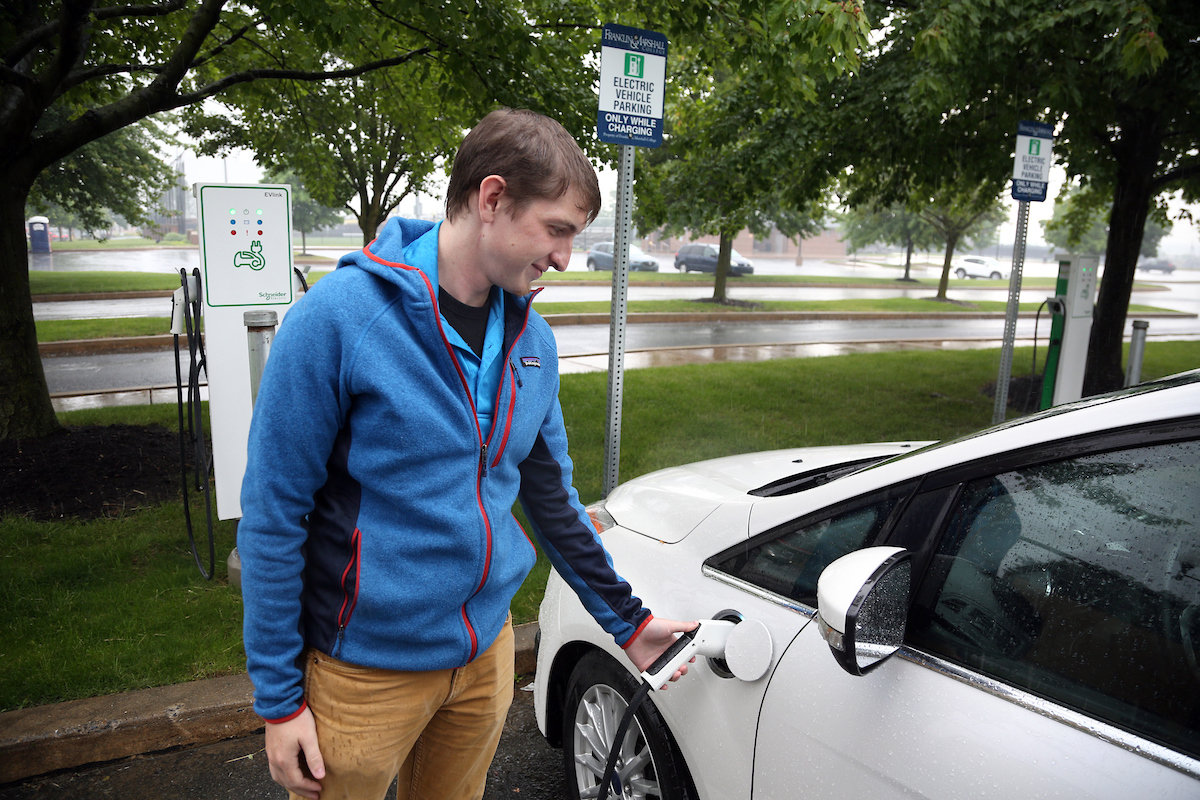
Electric Vehicle (EV) Charging Stations
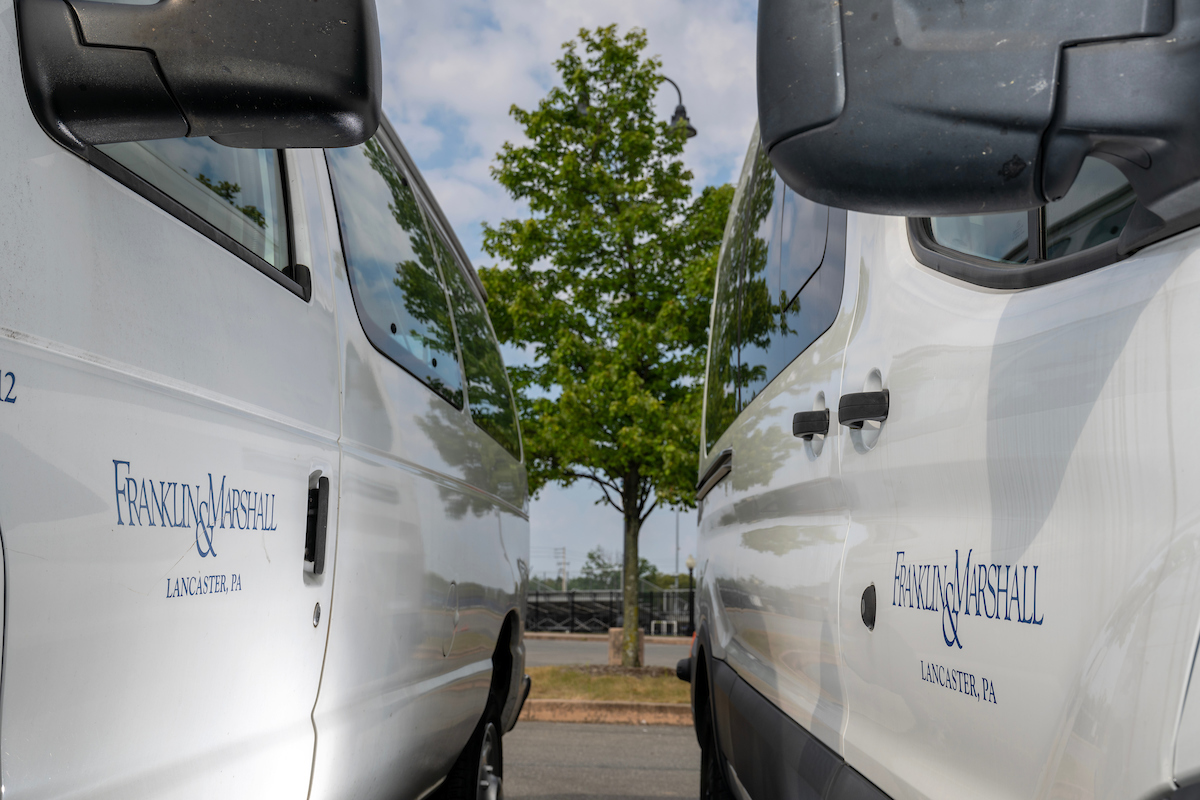
Shuttles and Buses
Waste
Trash
Recycling
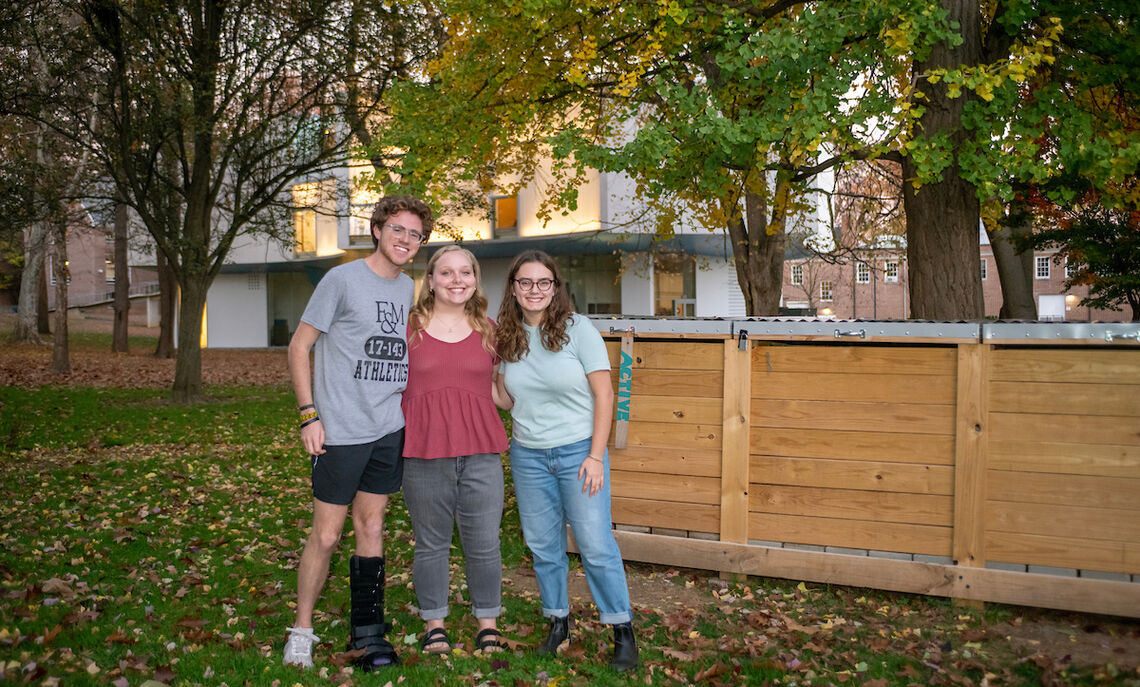
Water
Conserving Water
Reducing Stormwater
Getting Involved on Campus
At F&M, we have a unique opportunity to create a community of leaders in sustainability in and out of the classroom. In addition to engaging with our initiatives across campus, there are numerous ways for students to get involved with sustainability at F&M.
The biological sciences expand and advance frontiers of knowledge about all forms
of life. From molecules to ecosystems, from oceans to deserts, from the distant past
to present day, biology gives you insights into other species, ourselves, and our
world. Explore critical environmental issues of today through a scientific lens. By studying
earth and environmental science at F&M, you will build the necessary biological, chemical,
and geological foundation you need to study the earth and understand the dynamics
between humans and our environment. Do you wish to better understand how humans interact with and affect the environment
around us? Environmental Studies at F&M offers a distinctive approach to building
the knowledge you need to tackle the environmental challenges of the 21st century. Sustainability planning is an increasing need in the marketplace. F&M’s sustainability
planning certificate provides the glue that bonds biology; earth and environment;
and business, organizations and society to prepare students interested in careers
in sustainable practices. Environmental Action Alliance (EAA) is a student-led organization of environmental
activists, researchers, and advocates that engage in numerous sustainability and awareness
initiatives. The Sustainability House is a residential option for students of all backgrounds pursuing progress over perfection in more environmentally
conscious living.
Academics
Biology
Earth and Environmental Science
Learn moreEnvironmental Studies
Sustainability Planning Certificate
Clubs & Organizations
Environmental Action Alliance
Learn moreF&M Food & Sustainability Power Project
This campus-wide club aims to encourage the purchase and consumption of nutritious,
ethical, and environmentally friendly foods. By joining the club, you will also learn
about the harmful effects that factory farms have on animals, factory workers, and
the environment. Whether you follow a vegan, vegetarian, or reducetarian lifestyle
or are simply curious about the plant-based movement, you are welcome to join this
community!
Learn more
Diplomatic Congress
The student government, which includes a sustainability committee chair, is responsible
for uniting student leaders from all over the campus to speak on their behalf, foster
collaboration and joint initiatives, and meet with the leaders of the Center for the
Sustainable Environment and other offices committed to sustainable practices. This
is done to support the College's Sustainability Master Plan, and the student representative
serves on the campus sustainability committee.
Learn more
Sustainability House
Partnerships
Pennsylvania Environmental Resource Center (PERC)
PERC enables Pennsylvania's colleges and universities to share knowledge and take
action towards a sustainable future.
Learn more
AASHE inspires and catalyzes higher education to lead the global sustainability transformation.
Association for the Advancement of Sustainability in Higher Education (AASHE)
CPCAN is a community-driven group committed to identifying and implementing local
climate solutions, through convening and working collaboratively with stakeholders
for a more resilient future. CPCAN strives to lead by example and inspire other communities
to embrace climate action as an integral part of their identity.
College Park Climate Action Neighborhood (CPCAN)
Learn more
Campus Conservancies
Caroline Steinman Nunan Arboretum
The entire F&M campus has been formally recognized as the Caroline Steinman Nunan Arboretum. The arboretum is home to more than 1,000 trees from more than 120 different species.
Spalding Conservancy
The Spalding Conservancy is a 50-acre urban conservancy that is located less than one mile away from campus. It is named after the late F&M President Keith Spalding and his wife, Dorothy "Dot" Spalding. F&M purchased Spalding Conservancy in 1980 and it was designated as a conservation area in 2013. The land has a varied history, including Native American settlements and European farming. From 1920-1980, the Lancaster Brickworks Company used local clay to produce bricks on the site. Today, the land is a natural laboratory for observing land use change, hydrology, flora and fauna studies, and geological processes, as well as an ideal site for discussions about land preservation, conservation, and other topics across a range of disciplines.
Spalding Conservancy is bordered on the north by a railway line, on the west by the Little Conestoga Creek, on the south by suburban development, and the east by the sports fields. The conservancy's ecosystems consist of secondary forests, grasslands, and wetlands.
December 7, 2023 F&M students are inspiring climate action in unconventional ways. From internships to advocacy on campus, meet students making sustainability a more accessible concept. September 19, 2023 At F&M, renting a bike is as easy as checking out a book from the library. The F&M Bike Loan program provides a bike, helmet and lock to students free of charge. April 24, 2023 Sometimes, it's the quiet and contemplative moments in between class and co-curriculars where the most personal growth occurs. In this mindfulness miniseries, we explore moments of calm and...Franklin & Marshall College offers students a hands-on education that emphasizes close relationships with faculty. Students flourish in a supportive community that treats them as an individual, and their successes continue long after F&M. The College is a national leader in launching students and alumni to opportunities where they make a difference in the community and the world.Sustainability at Work
Students Take on Climate Change Beyond the Classroom
Pedal Power: F&M Bike Loans Benefit Students
Mindful Moments: Unwinding in Nature

